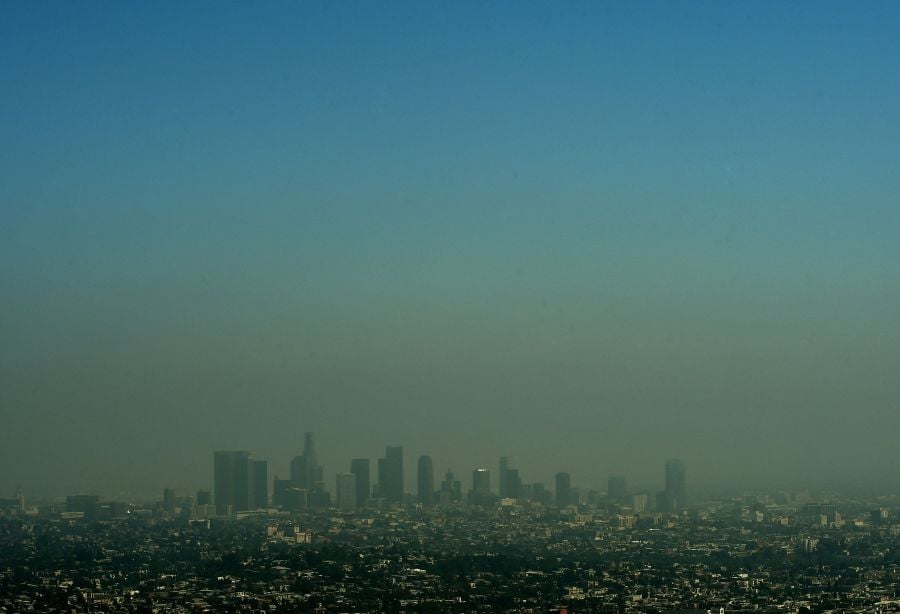OVER the last few decades, the threat of climate disaster has emerged ominously over the planet and prompted urgent calls for action.
The Earth's climate is changing dramatically due to human activities emitting vast amounts of greenhouse gases into the atmosphere.
Climate disasters are catastrophic and long-lasting environmental events or sets of events caused or aggravated by climate change.
Rising greenhouse gas emissions from the consumption of fossil fuels and deforestation reduce the Earth's capacity to absorb carbon dioxide, contributing to the greenhouse effect.
Rapid development and industrial activities also emit strong greenhouse gases, exacerbating global warming.
This causes ice caps and glaciers to melt, leading to increasing sea levels and endangering coastal communities. These catastrophes have significant and frequently devastating consequences for ecosystems, communities, and the economy.
Based on the World Meteorological Organisation's Mortality and Economic Losses from Weather, Climate and Water Extreme report, droughts were the worst hazard from 1970 to 2019 which killed 650,000 people; followed by storms (577,232 people); floods, (58,700 lives), and severe temperature events, during which 55,736 died.
Floods, droughts, tropical cyclones, increasing sea levels, and heat waves are some of the possible climate-related concerns that Malaysia may experience.
As a point of reference, in 2021, Malaysia experienced its worst flood in decades, resulting in 54 fatalities and the mobilisation of the army. Floods devastated eight states that year and burdened emergency services across the country.
Climate disaster warning indicators are becoming more visible. Rising global temperatures, melting ice caps, extreme weather events, and ecological changes are some of the signs.
The Intergovernmental Panel on Climate Change has repeatedly warned that we are at a tipping point, with dire repercussions awaiting mankind if drastic steps are not implemented quickly.
Climate disasters have far-reaching effects on human societies. Vulnerable populations suffer the weight of the issue despite being the least responsible for carbon emissions.
Increased frequency and severity of weather disasters result in food and water scarcity, displacement, conflict over scarce resources, health risks and eventually economic instability as a result of the destruction of infrastructure and disruption of supply chains.
Preparation is essential to manage any form of climate disaster.
In historical context, the story of Prophet Yusuf teaches us the importance of disaster preparedness (Yusuf, 12:46-49). One major aspect of the story is Prophet Yusuf's interpretation of the Egyptian ruler's dream. The Pharaoh was worried by the implications of the dream and sought an explanation.
The dream, according to Prophet Yusuf, foreshadowed a period of prosperity followed by devastating famine. When Prophet Yusuf interpreted the dream, he not only displayed his ability to predict the tragedy, but he also suggested a practical solution.
During the years of prosperity, he recommended the Pharaoh develop a strategic plan and store extra food to be used during the approaching famine.
Prophet Yusuf's foresight exemplified his wisdom, and earned him a position of considerable power and responsibility in Egypt.
Together with disaster preparedness, decisive action to mitigate and adapt to climate change is an undeniable need. Governments, corporations, and individuals must work together to bring about significant changes.
Subhadra, [21/12/2023 1:53 PM]
Among the considerations to take into account are: transition to renewable energy to reduce carbon emissions; international cooperation especially in terms of knowledge and technology transfer; conservation and reforestation to protect land and biodiversity; adaptation strategies which include the development of resilient infrastructures; early warning systems; community-based initiatives; and finally, a commitment to eco-friendly lifestyle changes.
The reality of climate disaster is upon us, and its consequences are far-reaching. Urgent and persistent efforts are essential to reduce present consequences and adapt to changes that are currently taking place.
The decisions we make now will decide the sort of planet we leave for future generations. It is time for humanity to work together in the face of this global issue, recognising that the wellbeing of all humans is inextricably linked to the health of our planet.
We must acknowledge that the disruption of the Earth's ecological balance contributed to numerous climatic disasters and that humankind is heavily involved in this predicament.
We must also admit that the devastating disasters that occur are both a punishment from the Almighty and the outcome of human activities (Ar-Rum, 30:41).
For these reasons, we must strive to restore the Earth's natural balance.
* The writer is Fellow at the Centre for Science and Environmental Studies, Institute of Islamic Understanding Malaysia (IKIM)






